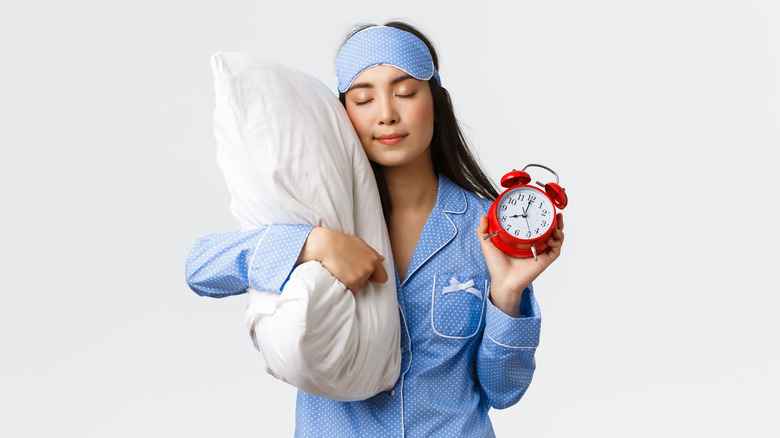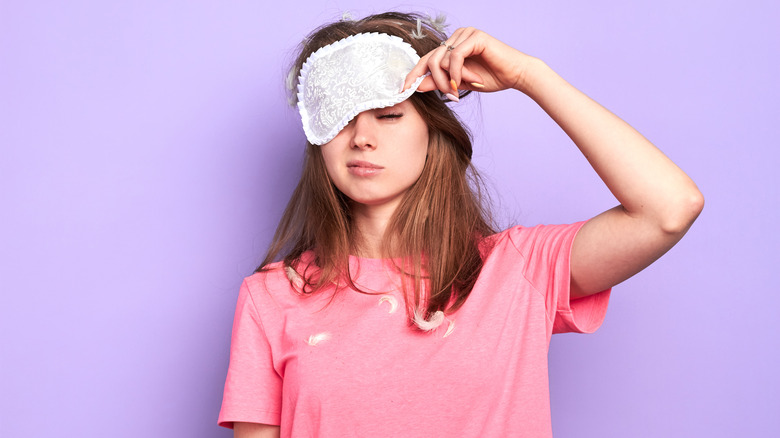The Real Reason Some People Are Light Sleepers
Some people can sleep through a dog barking loudly or even their own alarm clock, even if it wakes the neighbors. Do you wonder how these heavy sleepers are blissfully unaware of the noises around them while they sleep? Do the quietest of sounds wake you up easily? You are likely what's called a light sleeper. According to Medical News Today, a light sleeper wakes easily from sounds, lights, or smells. Doctors use the term "arousal threshold" to explain this. Light sleepers have a lower arousal threshold than heavy sleepers.
Quality sleep is vital for your health. There are two main types of sleep — REM (rapid eye movement) and non-REM. In non-REM sleep, there are three stages. Stage one is when you've just fallen asleep and is considered light sleep. Stage two is another form of light sleep, and it's in this stage where you spend most of your sleep time. Stage three is deep sleep and is necessary for feeling refreshed and well-rested. It can be more difficult to wake you when you're in a deep sleep. REM sleep typically begins about 90 minutes after you've fallen asleep. REM sleep is when you might dream, and your eyes move around quickly beneath your eyelids (via the National Institute of Neurological Disorders and Stroke).
Everyone cycles between light and deep sleep throughout the night. But what causes some people to be light sleepers and others to be heavy sleepers?
Causes of light sleep
Being a light sleeper can be frustrating, because you seem to wake up from the slightest changes in your environment.
There are a few theories on what might be making you a light sleeper. You could have an undiagnosed sleep disorder, your bedroom environment could contribute, or it might run in your family. Your arousal threshold could be lower because of stress, age, sleep stage, and how long you're awake (via the Sleep Foundation).
According to a 2010 study, spontaneous brain rhythms called "sleep spindles" can cause light sleep. If you generate fewer sleep spindles, you may experience a lighter sleep, causing you to wake up at the slightest change in your environment. As you get older, you become more of a light sleeper and tend to sleep less overall, and it seems to be connected to sleep spindles, because you'll make less of them as you get older.
Fortunately, there are some things you can do to sleep better and feel more refreshed during the day. First, see a sleep specialist determine if you have a sleep disorder. You might need to take a sleep study to see if you have sleep apnea. See a mental health specialist if you're experiencing a lot of anxiety and stress. Healthline recommends removing anything with a screen from your bedroom, and keep it dark, cool, and quiet. Try blackout curtains, an eye mask, and earplugs.


